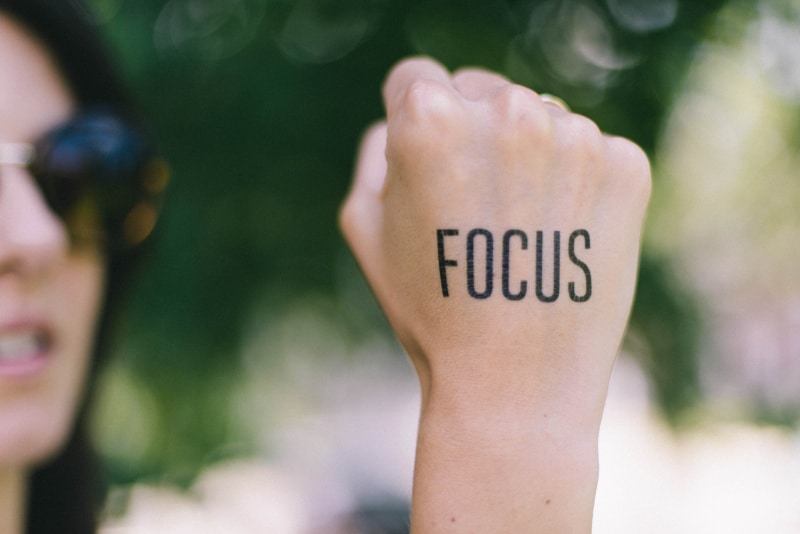
Do you want to ace – or even just pass – USMLE Step 1 in less time AND build the foundation for Step 2? Step 1 moving to pass-fail has changed most Step 1 study plans. Why? Because Step 2 Clinical Knowledge (CK) performance will become more important for your residency applications. How can you balance your study time and strategies for both exams? How can you learn and retain the material for the long term?
In this blog post, Dr. Palmerton shares ten habits he used to score 270 (99.9 percentile) on Step 1. We’ve helped many students pass Step 1 despite being “bad standardized test-takers.” What’s clear is that the foundation you lay with your habits on Step 1 can help you excel on Step 2. Read on to determine what habits to adopt in your own Step 1 study plan.
In the words of Aristotle, “We are what we repeatedly do. Excellence, then, is not an act, but a habit.”
Summary:
-
Step is now pass-fail; it’s easy to underestimate its importance
-
Most people focus on a daily task list when they should be focusing on habits
-
Here are 10 habits that can help you pass Step 1 comfortably while building a strong foundation to crush Step 2
Table of Contents
What does your Step 1 study plan prioritize?

Your priorities determine what habits you adopt
Your priorities will determine which practices you should embrace or avoid. A useful habit in one case may oppose another. My priorities were clear for my preclinical years:
- Learn to apply/integrate information useful to Step 1/medical practice
- Remember that information forever
You will see how each of these habits supports the priorities of my Step 1 study plan. Habits are inherently neither good nor bad. Instead, your goals, practices, and execution will determine your success. Here is the Ten Habit Step 1 study plan I used to score 270.
Habit #1: Mastery >>> Memorization – A Crucial Step in Your Step 1 Study Plan
For success on the USMLE Step 1 or other board exams, you must master the material. Mastery is difficult. By contrast, it’s simple to do well on most medical school exams. Medical school exams draw from rote lecture material and emphasize memorization over understanding. Consequently, students believe the myth they don’t have to understand to succeed. When they begin preparing for the USMLE Step 1, they’ve already lost a lot of time. No Step 1 study plan can fully overcome two years of memorization in two months of dedicated study. Your best option is to master the material from Day 1. Your next best choice is to start now.
Habit #2: Spaced repetition for a Step 1 study plan that will set the stage for Step 2 success
Mastering material takes much longer than memorizing it. So, once you’ve mastered the content, you must never forget it. You have only enough time to learn everything once. I discovered spaced repetition during M1, and its potential for unbounded memory was mesmerizing. It was frustrating to forget what I had mastered. By remembering the information, I could prevent re-learning it.
My Step 1 study plan included finishing my Anki cards every day. I never slept before finishing my reviews. I did my cards on vacation and even the evening after my Step 1 exam. Now, it takes 20-30 minutes daily to do my Anki cards. I’ve made more than 20,000 reviews, but fewer than 100 are due at any time. I can remember everything I mastered in my medical training in less than an hour daily. Many students accelerate both mastery and retention using the Yousmle Anki cards.
Habit #3: Unlocking Success with Deep Work – A Pivotal Element in Your Study Plan
A variant on a law for productivity is this:
Quality work = intensity of focus x amount of time spent
You improve productivity by increasing the time spent or the intensity/quality of your focus. Most medical students are at their wit’s end; the idea of extra studying gives them GERD. Instead, I improved my ability to concentrate. Instead of studying more, I maximized the quality of my time. For more tips on how to do this, read Habits #4, #5, and #6.
Habit #4: Bedtime by 9 PM: A Key Element in Your Step 1 Prep
Early to bed accomplishes two goals. First, I wake up early; mornings are my most productive time of the day. Second, I’m well-rested and able to concentrate. Concentration and discipline vary depending on the time of day.
For example, today I woke up at 6 AM without an alarm and did 94 Anki reviews in only 20 minutes. That’s blazing. At night, this many cards would take 2-4x as long. When I’m tired, I focus less and get distracted more. Youtube has never sucked me in at 7 AM. At night? That’s an entirely different story.
Your ability to focus each day is also proportional to your hours of sleep. Discipline and self-control are finite and dynamic. By getting 8 hours of sleep consistently, I never needed caffeine in medical school. I was always well-rested, which made studying easier the next day. This virtuous cycle made it easier to sleep early and accomplish more.
One last thing. Some people are truly night owls and focus better at night. Should they be going to sleep early? Not necessarily. Like everything, this was my habit. You should sleep enough to maximize concentration. But maybe mornings aren’t your thing. Experiment with different sleep times to see your most effective time of day. Even if you are nocturnal, remember that clerkships require early wake-ups. Some students report getting up at 4 AM for their surgery clerkship. If you learn to become functional earlier in the morning, this transition will be easier.
Habit #5: Integrating Mindfulness into Your Study Routine

Use mindfulness meditation to improve well-being and concentration
Mindfulness is the “nonjudgmental awareness of the present.” This meditative practice helps with well-being, anxiety, and the quality of your attention. I didn’t expect this final point, but boosting my concentration made mindfulness a perfect addition to my Step 1 study plan.
At Stanford, I created a summer mindfulness course for medical students. In “body scan” exercises, we learned to direct attention to different parts of our bodies. In the process, we learned to “get out of our heads” and be more present. We soothed our stressors and honed our attention.
During my boards studying, I would do one of these practices every night before sleep. As a result, I slept like a baby and my attention was laser-like. Taking Step 1 was blissful. Standardized exams used to induce panic, so the contrast was dramatic. I took my MCAT on 2 hours of sleep, couldn’t concentrate, and nodded off during the writing section. On Step 1, I was in the zone. Instead of getting distracted and having to re-read passages, I read every sentence only once.
Daily meditation helped me score 270 on Step 1. I’ve experimented with different mindfulness programs. I previously used Headspace. One I am using currently is The Miracle Morning.
Habit #6: Eliminate Distractions in Your Study Plan
Internet companies make billions by siphoning our attention. In the process, our focus becomes fragmented, and the quality is degraded. Most of the internet felt like a daily assault on my Step 1 study plan. Email, news sites, and Minnesota sports teams tempted me. Instead, I blocked these on a schedule by using Freedom.
Every morning during medical school, I would block all Internet use for two hours. Internet-free mornings created the space to do genuinely focused work. I would still allow myself my guilty internet pleasures, but I wouldn’t let them enslave me.
I continue this practice to this day. During residency, I didn’t buy a smartphone so I could read/study on the Boston Metro on my daily commute. These days, I block my access to e-mail on my phone and computer from 6 PM to noon the next day. Because I can do more focused work, I feel more accomplished. By creating dedicated time for distractions, I enjoy them more.
Habit #7: Chase one rabbit (focus)
“Chase one rabbit, catch it. Chase two, catch neither.” These are the wise words of my Stanford advisor, Dr. Oscar Salvatierra. You can use this habit in almost every situation.
Many first-year Stanford classmates siphoned their time into research projects or shadowing. Instead, I focused on mastering and retaining the board-relevant material from class. As Ray Dalio once wrote, “While you can have virtually anything you want, you can’t have everything you want. Life is like a giant smorgasbord with more delicious alternatives than you can ever hope to taste. Choosing a goal often means rejecting some things you want to get other things that you want or need even more.”
Once I developed a system for mastery and retention, I added other things. I did a year-long HHMI research fellowship and found productive shadowing. But I chased each rabbit one at a time.
Habit #8: Elevating Your Step 1 Study Plan with Insightful Journaling
In medical school anxiety is inevitable, and its effects are pernicious. Ignorance of your stressors can derail even the best Step 1 study plan. Stress is silent and powerful. I’ve seen students drop 50+ points from their predicted Step 1 score. They panicked and started guessing. I’ve also seen students improve by 20+ points in a week by overcoming their anxiety.
How journaling helped identify my root anxiety
I buried my anxiety for years, culminating in a panic attack during my second year of college. I was ignorant of my stress until someone asked me what worried me. As I spoke, all my anxieties welled up and overwhelmed me. But then something unusual happened. By naming my fears, their power disappeared. One by one, as I realized why I was anxious, calm emerged.

Journal to identify and alleviate stressors
By journaling, I have honed this ability to identify my anxieties and to get to their core. Whenever I feel anxious, I begin typing in a Word document. During my preclinical years, a common theme looked like this: Why am I worried? I want to do well on Step 1. WHY do I want to do well on Step 1? Because I don’t want to close any doors for myself. Why is that so important? Because I don’t know what specialty I want to do yet. And so on until I identified my root anxiety. Identifying root anxieties relieves my other resulting worries.
How journaling fueled my improvement on Step 1
One insight from 15+ years of journaling: insecurities and focusing on things I can’t control drive most of my anxieties. Why was I so worried about my Step 1 score? Because I couldn’t directly affect it. Plus, like so many others, I conflated my self-worth with my exam scores. This misplaced sense of identity was driven by the core insecurity that I was fundamentally lacking. Realizing that my worries are stemming from the same core fears helps immensely.
How can you incorporate journaling?
To relieve anxiety with journaling, write three things every day. Be as specific as possible.
-
What are you stressed about? What exactly is so stressful? Prepare to go deep.
-
What are three things you appreciate? Gratitude improves happiness and relieves stress.
-
What are three things you want to improve?
Overcoming your anxiety will improve your focus and happiness.
Habit #9: Teach others
It’s not enough to learn the content. You need to use it. One of the best ways to use it in your preclinical years is to teach others. As part of my Step 1 study plan, I maximized opportunities to teach other students.
During my second year, I tutored other Stanford medical students and TA’d two courses. Often, the material made sense in one way to me. However, I needed to see it in other ways to teach it. Other people will ask things you haven’t considered. A fast way to deepen your knowledge is to educate someone else.
Habit #10: Consistency, the final key to a great study plan
It’s much better to be the tortoise than the hare. I’m not brilliant, and I didn’t grasp anything immediately. Instead, I would grind until I could make sense of a topic. My advantage was that I did this for every single class topic starting midway through my first year. The accumulated benefits over the two years before Step 1 were immense. Whatever priorities and habits you establish, the key is consistency.
Concluding thoughts
In a vacuum, these habits may appear strange. Because you understand my priority was efficient mastery and retention, my Ten Habit Step 1 study plan makes sense. Perhaps that is the most important lesson. The priorities that you set (or don’t set) will clarify your path, and help you to determine the best habits to adopt. I share these habits not to be an exact guide for you to follow. Instead, think about your priorities, and what habits you might adopt to achieve them.
What do you think? What are your priorities, and what habits have you chosen to achieve them? Let us know in the comments!







